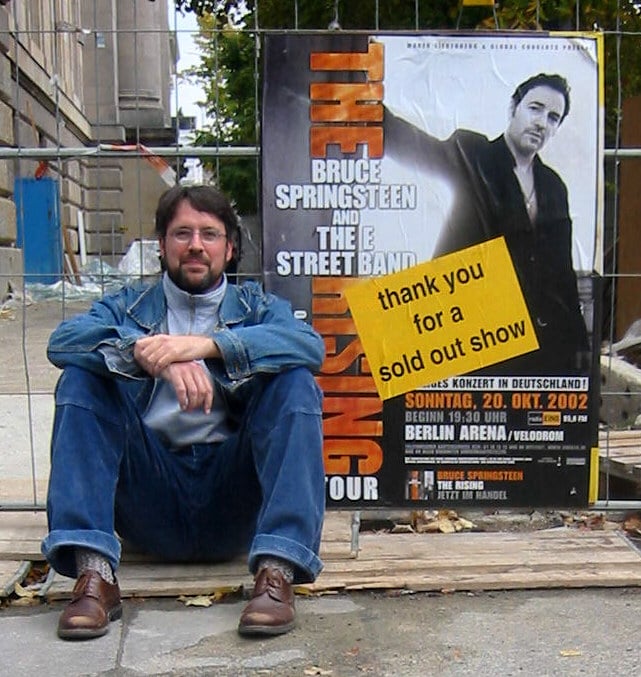News is everywhere. The latest news is always at our fingertips, whether we’re reading, watching or listening. Behind the unlimited vault of articles we have access to are some of the busiest makers in the world — journalists. Teams of writers, reporters, editors, and many more work around the clock to provide the public with their most basic right. The right to information.
Phil Kuntz has quite a bit of experience making headlines, with publications such as the Wall Street Journal, Congressional Quarterly, The Miami Herald, and presently Bloomberg News. For him, providing information consists of accuracy and straightforwardness. Similar to the likes of Hemingway, Phil follows a “no nonsense” format that ensures any informed reader will understand the topic at hand.
“I love taking a really complicated subject and making it direct,” Phil said.
The key is to keep it simple, and with simplicity comes a greater accessibility to fairness.
“Not that we shouldn’t have opinions,” Phil said, “but one needs to be aware of [journalist’s] opinions.” He emphasizes that even when a reporter feels strongly about a subject, he or she has to present honestly all sides of the story. When it comes to reporting hard news, objectivity is essential.
But, not all news is hard news. Stories can stem from all walks of life. Phil once took a personal vacation to follow Bruce Springsteen on tour across Europe to jam out with “The Boss” in multiple major cities. At the time, the American stereotype wasn’t so popular across the pond, but “Born in the USA” superstar Springsteen was quickly winning over the continent. So, Phil made the clear journalistic move and turned his rock and roll pilgrimage into front-page news at the Wall Street Journal.
 Now, Phil is a Pulitzer Prize-winning journalist who has been uncovering injustices in the political and social realm for decades. However, one of his most memorable exposures occurred on a small town-scale in a modest Florida county. A new legislation pressed for a ban on all ice cream vendors in school zones due to reports of vendors selling drugs from their carts. Phil mapped out the flaws, realizing that the school zones described in the legislation would forbid vendors from nearly the entire county. His findings were published in the Miami Herald, and in due time, the legislation was scrapped. The ice cream vendors awarded Phil with a homemade plaque he still keeps in his office today, showcasing how news impacts everyone – and sometimes the biggest impacts are made on the smallest communities.
Now, Phil is a Pulitzer Prize-winning journalist who has been uncovering injustices in the political and social realm for decades. However, one of his most memorable exposures occurred on a small town-scale in a modest Florida county. A new legislation pressed for a ban on all ice cream vendors in school zones due to reports of vendors selling drugs from their carts. Phil mapped out the flaws, realizing that the school zones described in the legislation would forbid vendors from nearly the entire county. His findings were published in the Miami Herald, and in due time, the legislation was scrapped. The ice cream vendors awarded Phil with a homemade plaque he still keeps in his office today, showcasing how news impacts everyone – and sometimes the biggest impacts are made on the smallest communities.
To the public, timeliness might be the most essential requirement of news. Thanks to the Internet, people expect to have access to the latest information as soon as it occurs. Every journalist wants to be first; though being first usually comes with mistakes. It is far more important to be accurate than first, as Phil notes: it’s better to be “frequently first and always right.”
Along with these inaccuracies, the ever-growing demand for information in the digital world has the tendency to allow ample room for bias in news reporting. Readers tend to stick by bias they coincide with, creating a divided communication system.
“More and more people gravitate toward reading from news outlets with which they agree,” Phil said.
Essentially, people read news they want to hear to reinforce their own beliefs and opinions. Though much of this sounds fairly negative, there are benefits to the digitization of journalism.
The web opened doors for writers everywhere to be heard.
“The more voices there are, the better it is for democracy,” Phil said, but most online news publications “haven’t yet figured out how to monetize what they do.”
Phil believes eventually these outlets will thrive just as newspapers did, as long as they get organized first.
So, for up and coming journalists in this intimidating landscape, Phil advises taking advantage of the possibilities the Internet provides. Most importantly, “get your name in print” – write a blog, submit to websites, do what you can to put yourself out there. He also suggests plenty of practice and as much networking as possible to open as many doors as possible.”
“Before you can start making headlines, you have to make an impact,” he said.
When Phil isn’t making news, he’s serving as a curator for TEDxNavesink. To see what Phil and many other incredible intellects have conjured up for this conference, get your ticket to TEDxNavesink Makers today!

